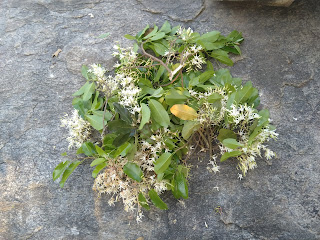The other day I did something that I am really good at: got the car stuck in mud, this time on the dirt track leading to Random Rubble (the farm). I am an old practiced hand at this, so when I get a car stuck in mud, I do a thorough, systematic job following a CMM Level 5 process, with Six Sigma for company. This time the car swayed sideways like Mariappa after his evening brew and the wheels got stuck in a deep groove formed by a tractor. We – the car and I – sunk so low down that I could plant tomatoes and palak on my accelerator, no questions asked.
So, I switched off the engine and waited for help.
Muniyappa was the first to walk by. By way of intimate introduction, this Error-of-Evolution has the Intelligence Quotient that falls in-between that of a plastic chair and a caterpillar. He had a puzzled look and tapped the car’s bonnet, expecting it, no doubt, to be made of banana fibre or Sentient Life or something.
“Sir, why did you not take this route?” he said, pointing helpfully to what I should have done. I tried telling him that I didn’t see the mud from the driver’s seat, but gave up after the third attempt because Seenappa and two of his buddies landed up and asked me the same question, shaking their heads and grinning like that asinine scarecrow with a pot for a head in the avarekkai field.
Everyone and his mother-in-law then got into a big argument on whether the car should be pushed forwards or backwards to get it out. I suggested that they include up and down as well in the list of options, but sarcasm is generally wasted in my village after it is translated into Telegu. Then Ramappa – whom I call Universe Boss because Society in general is carefully wary of him - turned up with his A2 cows and stated emphatically that we would propel the car forward. Forward, he growled again, so everyone, including the cows, nodded their heads with Deep Understanding.
So, when I started the car and revved the engine on first gear, three out of the five stalwarts in attendance, including Error-of-Evolution, pushed backwards with all their might. The car dug itself deeper in, of course, and Ramappa got three bucket loads of mud on his shirt, after which he used words for his fellow-countrymen that may be classified as Higher Education In Pursuit Of Infinite Reality.
Muniyappa stood aside and looked at me thoughtfully. “Sir, you should not have taken this route,” he said, shaking his head like he was doing a stress test for the Timken ball bearings at the base of his thick skull.
Ramappa then began to fill in the grooves with mud – the first sensible thing that anyone had done – while everyone else agreed that we needed a tractor, though no one knew why, while Venkatesh kept us engrossed with three tragic, deeply emotional stories of cars-in-mud that had become discounted scrap metal. When Ramappa was done filling in mud and swearing at the others, everyone promised this time that they would only push forwards which, I am happy to report from the trenches, worked out. So, the car was saved from being scrap metal (for the moment. Watch this space).
I then parked the car by the gate just ahead and Muniyappa landed up, this time examining the wiper blade intently and testing it on his finger.
“Sir, tell me,”he said, “why did you drive into the mud?”
















